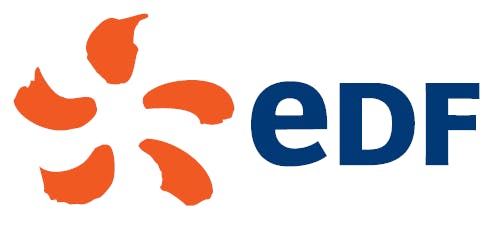The continuation of the EV100 programme (1), the increase in the use of electric vehicles, as well as training in eco-driving, should enable the Group to make further progress in reducing the energy consumption of travel and its carbon footprint. Another avenue under study to contribute to this is the display by TRHIPS (2) of the CO2 emissions for each trip, as well as the possibility of prioritising low-carbon travel proposals.
Reducing travel remains a major lever for saving fuel and achieving carbon neutrality. As part of the Group HRD’s “Fighting CO2 Starts With Us” initiative, many actions have already been proposed in this sense. An energy efficiency challenge has been added to the programme.
The Group’s employees are increasingly aware of these issues, particularly as a result of networks set up by staff, for staff (3).
3.2.4.4 Conventional waste management and recovery
Conventional waste is the waste produced by the EDF group on its sites. It does not include radioactive waste, coal ash or gypsum derived from the process, which are managed and assessed separately. Waste stored on-site, waste awaiting disposal,
materials reused on-site (e.g. spoil and rubble) and equipment that could be reused (sold or gifted) are not taken into account. Construction and decommissioning waste is included in this report, if its management falls under the responsibility of the EDF group.
3.2.4.4.1 Recovery of conventional waste
3.2.4.4.1.1 Group policy and commitment
The Group’s CSR policy aims to develop the circular economy approach and improve the recovery of waste produced. This policy takes concrete form in various ways, including the development of the reuse of parts and materials, particularly during deconstruction work; the implementation of on-site pre-processing of various waste products, in order to limit the volume of waste produced and promote the recovery of the remaining fraction (concentration of hydrocarbons, separation of asbestos); the establishment of partnerships with players in the recycling field (RECYLUM for Citelum, Veolia and Suez for conventional waste, Ateliers du Bocage for printer cartridges); sorting and recovery of waste in authorised channels; for example, excavated earth or sediments from hydraulic dams are recovered as aggregates for civil engineering or during public works; sorting and recovery of certain waste in dedicated recovery channels (Soren or First Solar contracts from EDF Renewables for end-of-life panels). (4)
3.2.4.4.1.2 Key performance indicator
GROUP KEY PERFORMANCE INDICATOR
Group’s annual target for conventional waste recovery is at least 90%.
The decrease in the recovery rate of conventional waste observed in 2022 can be explained in particular as a result of actions adopted to reduce the production of the most recoverable waste, as part of EDF’s strategy to prevent waste from operations, maintenance and new construction sites, in addition to increased reuse (particularly at the DPNT (Nuclear & Thermal Fleet Department) and Framatome).
Hazardous waste
In 2022, hazardous waste production totals approximately 73,000 tonnes Group-wide. This mainly consists of mixtures of water and hydrocarbons, sludge from flue gas treatment from the operation of facilities.
In France, new tracking tools have recently been put in place to further optimise the management of production of hazardous waste from industrial sector operations (including a dedicated quarterly tracking indicator).
Annual rate of conventional waste directed towards a waste recovery industry (in %)

2020 : 91.9
2021 : 92.7
2022 : 88.4
Target : >90
3.2.4.4.2 Recovery of combustion products
Use of ashes
Resulting from the combustion of coal to generate electricity, coal ashes have properties that enable them to be used in various applications (in particular cement and concrete). In 2022, EDF produced 52,755 tonnes of coal ash and used 19,408 tonnes, i.e. a use rate of 37%.
Research works
As part of its continuous improvement approach, EDF conducted research works to improve the use of ashes, sediment and sludge, particularly via works by the non- profit RECORD.
3.2.4.4.3 Recycling in the field of new renewable energies
3.2.4.4.3.1 Recycling of wind turbines
98% recyclable wind turbines, including the concrete foundations
Composed essentially of concrete, steel/cast iron, copper and aluminium, the structure of a wind turbine is 90% recyclable. Including concrete foundations, this figure rises to 98%. The most difficult elements to recycle are the blades: they represent about 10% of the weight of a wind turbine (2% including the foundations). The most mature processing method is currently energy recovery, but alternative solutions are being developed (material recovery).
(1) See section 3.1.4.3.6.4 "EDF's commitment for its vehicle fleet (EV100)".
(2) TRHIPS (Travel, Risk Management, RH, Information Planification System) is the software available to employees, covering four areas of online booking: rail and air tickets, accommodation, and car hires.
(3) See Rhizome initiative (see section 3.3.4.3 “Social innovation for a just and inclusive energy transition”).
(4) See in particular section 3.2.4.4.3.2 which sets out in detail these contracts.
